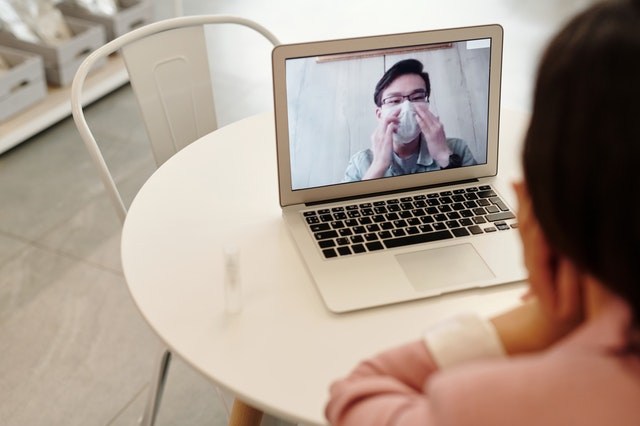While it is mandatory to quarantine after a high-risk contact and to self-isolate when infected with the coronavirus, health officials explained what to do when one of your housemates has possibly been exposed to Covid-19.
"The figures have started declining, but they need to drop a lot further," said virologist and interfederal Covid-19 spokesperson Steven Van Gucht during a press conference on Monday. "Quarantine after a high-risk contact and isolation are crucial tools to get the coronavirus epidemic under control."
A high-risk contact is when you come into contact with someone else for more than 15 minutes, without a 1.5 metres distance, and without wearing a mouth mask. "Those 15 minutes do not have to be consecutive, but can be three times five minutes spread over a full day as well," Van Gucht said.
"If both people wore their face masks correctly, this is considered a low-risk contact," he added.
Quarantine
Someone who is not ill, but who has had a high-risk contact with an infected person, should quarantine as a precautionary measure, counting from the last contact with the infected person.
Quarantine lasts ten days, as most people who are infected become ill within ten days. "However, it can take up to 14 days for someone to become ill after infection, but most people develop symptoms five to six days after exposure," Van Gucht said.
Only the person who has had a high-risk contact has to quarantine. This means that you do not have to separate yourself from housemates or family members living under the same roof as you.
Quarantining people should stay at home as much as possible, and only leave their house for essential matters, such as a visit to the doctor, pharmacist or supermarket.
Wearing a face mask is recommended even during contact with the people living in your household.
Visiting people or receiving visitors is not allowed.
The house should be well ventilated.
Everything the person in quarantine touches regularly, such as door handles, light switches and toilet seats, should be cleaned thoroughly.
Use different sheets, towels and plates than the rest of the people in your household as much as possible.
"Additionally, try to eat at a different time than your housemates, and use a different bathroom and toilet if possible," Van Gucht said.
Related News
- Covid-19: high-risk contacts can get tested again from mid-November
- Belgium 'on the right track' to bring curve down, says Van Ranst
Isolation
People who are infected with the coronavirus have to isolate for seven days, whether they are showing symptoms or not. The seven-day isolation period starts from the first day the symptoms are noticeable, or from the day of the positive test if there are no symptoms.
After seven days you may leave the house, provided the fever has been gone for at least three days, and there is an improvement in breathing symptoms. If this is not the case, the isolation period must be extended.
The quarantine rules also apply to isolation, but stricter. "Do not leave the house, let someone else do your groceries. If you need to see a doctor, let them know in advance that you are infected," said Van Gucht.
Avoid contact with housemates as much as possible, and if you do come into contact with them, wear a face mask. "If you live with vulnerable people, it is best to let them stay somewhere else for a week," said Van Gucht.
The house should be well ventilated.
When one person in a household has to self-isolate, all the others have to quarantine.
Close contact should be avoided as much as possible. However, as complete isolation from the people under the same roof as you is often not possible, housemates should not only go into quarantine while you are self-isolating, but also stay in quarantine for the normal 10-day period afterwards.
"As housemates can be infected until the seventh day of isolation, ten days should be added from that day onwards," Van Gucht said. "This means that housemates must remain in quarantine for a total of 17 days. This will require a great deal of effort, but this way everyone can contribute to defeating the virus."
Maïthé Chini
The Brussels Times

